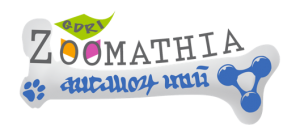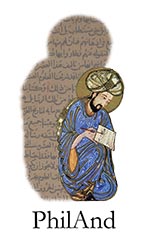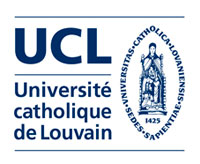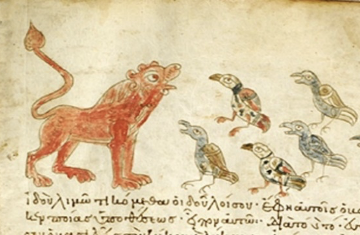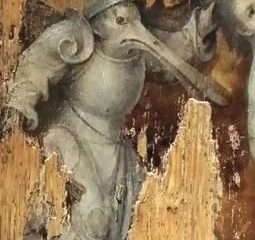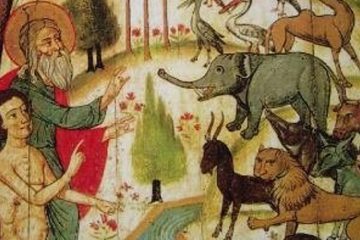 International Conference, Louvain-la-Neuve, 2021, May 06-07
International Conference, Louvain-la-Neuve, 2021, May 06-07
Sharing species, sharing knowledge : The circulation of animals between East and West (12th – 16th centuries) / Partage d’espèces, partage de savoirs : la circulation des animaux entre Orient et Occident (XIIe – XVIe siècles)
Comité d’organisation : Baudouin Van den Abeele (UCL, Université Catholique de Louvain), Godefroid de Callataÿ (UCL, Université Catholique de Louvain), Antonella Sciancalepore (UCL, Université Catholique de Louvain), Meyssa Bensaad (UMR 7219, laboratoire SPHERE, Paris), Arnaud Zucker (Université Côte d’Azur, CEPAM UMR 7264)
Presentation
On both sides of the Mediterranean sea animals and zoological knowledge were the subject of intense circulation in the Middle Ages. Syriac and Arabic translators took the Aristotelian zoological corpus in hand very carefully, and this involvement gave rise to translations, followed by Arabic commentaries and summaries. The Arabic version of the Aristoteles’ treatises was, in turn, transferred in the opposite direction, through Latin translations at the beginning of the thirteenth century. However, many other types of « animal » texts have had a similar destiny: one thinks of hunting treatises, agronomic and veterinary texts, fables, medical or magical writings giving way to animals, certain forms of bestiaries, etc.
On the other hand, the direct contacts that were established during travels and pilgrimages, or through commercial or diplomatic exchanges between courts, led both to transfers of animals or natural and artistic products and to the writing of stories by authors interested in naturalia.
This Conference aims at highlighting this circulation and import-export of knowledge and natural and figurative products between East and West, as well as the sharing of practices and representations. It is organized in close collaboration with the Zoomathia network and the ERC PhilAnd.
The conference will take place over two days, 2021, May 03-05, at the Catholic University of Louvain. Papers are limited to twenty minutes and will be followed by a discussion. The languages of communication will preferably be French or English. A publication of the texts is not foreseen at this stage.
De part et d’autre du bassin méditerranéen les animaux et le savoir zoologique ont fait l’objet d’une intense circulation au Moyen Age. Les traducteurs syriaques et arabes ont pris en main avec acribie le corpus zoologique aristotélicien, qui a donné lieu à des traductions, puis des commentaires et résumés arabes. La version arabe des traités du Stagirite a fait l’objet, à son tour, d’un transfert en sens inverse, par le biais de traductions latines à l’orée du XIIIe siècle. Mais bien d’autres types de textes « animaliers » ont connu une fortune partagée : on pense aux traités de chasse, aux textes agronomiques et vétérinaires, aux fables, aux écrits médicaux ou magiques faisant place aux animaux, à certaines formes de bestiaires, etc.
D’autre part, les contacts directs qui se nouaient à l’occasion de voyages et de pèlerinages, ou par les échanges commerciaux ou diplomatiques entre cours, ont conduit à la fois à des transferts d’animaux ou de produits naturels et artistiques et à la rédaction de récits par des auteurs curieux de naturalia.
L’objet de ce colloque est de mettre en valeur cette circulation et cet import-export de savoirs et de produits naturels et figurés entre l’Orient et l’Occident ainsi que le partage de pratiques et de représentations. Il est organisé en étroite relation avec le réseau Zoomathia et l’ERC PhilAnd.
Le colloque se déroulera sur deux jours, du 3 au 5 mai 2021, à l’Université catholique de Louvain. Les communications sont limitées à vingt minutes et donneront lieu à des échanges dans la foulée. Les langues de communication seront de préférence le français ou l’anglais. Une publication des textes n’est pas prévue à ce stade de la programmation.
Program
Soon available
